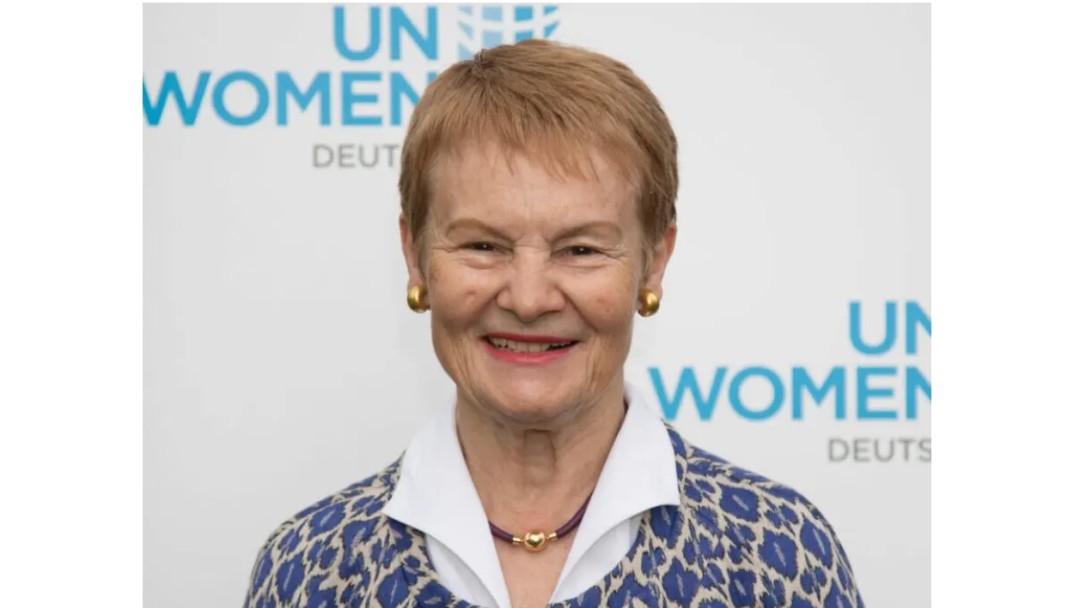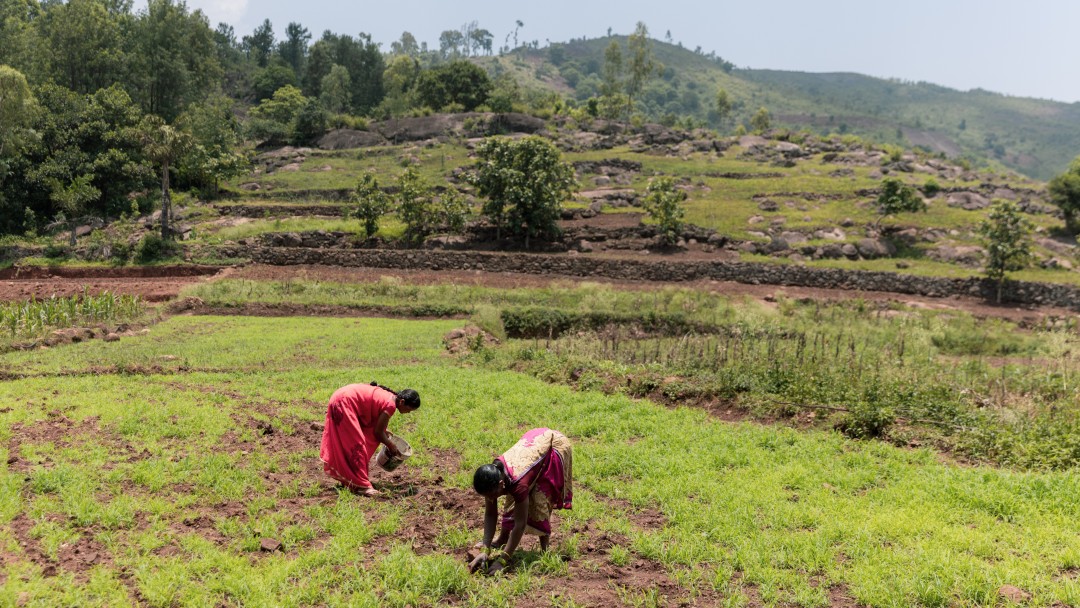Interview mit Dr Ursula Schäfer-Preuss
“We need perspective on gender”A conversation with Dr Ursula Schäfer-Preuss from UN Women Germany. In an interview with Friederike Bauer, she talks about the risk of regressing and why development cannot succeed without women.

This day is extremely important. Unfortunately, we are still far from the goal of gender equality and justice. According to calculations by the Swiss World Economic Forum, at the current rate, it will take 162 years before women are equally involved in politics and 169 years before they achieve equal participation in the economy. Of the 18 indicators representing the corresponding Sustainable Development Goal (SDG 5), significant progress has only been made in education and the participation of women in municipal administration. For all other indicators, there is still a long way to go.
All in all, we're still moving in the right direction, but it’s just too slow. However, the following also applies: the progress that we have already made can be lost again, through crises and conflicts and through conservative gender roles. Progress is not a matter of course; it is a constant struggle that must be fought for. That’s why UN Women says “we have to push back the push-back”. In other words, we need to take measures against regression. Of course, the play on words sounds better.
Both. In times of crisis, and there is now plenty of evidence to support this, women are more likely to become victims of sexual violence. They are also quickly reduced to their role as housewife and mother, as “caretakers”, and lose economic opportunities. This can be easily observed in many of the current crises and conflicts. The coronavirus pandemic presented us with a dramatic example of this. The first people to lose their – informal – jobs in India, for example, were women. The pandemic hit women much harder than men in many ways, all over the world. In addition, there is a growing number of dictators, autocrats and populists in democracies who usually create or want male-dominated regimes. We are seeing this very clearly in Argentina; the new right-wing president Javier Milei has abolished the Ministry of Women and wants to ban abortion, even after rape. Russia has recently eased domestic violence penalties. There are many examples like this. The risk of regression is therefore real and particularly high with such regimes.

These studies do indeed exist. Gross domestic product increases significantly if women are involved in economic life in line with their abilities and talents. It’s beyond doubt. But this is about power over women and about traditions that are apparently difficult to break, even if they are actually to a society’s detriment. Plus, men are often more willing to enter into conflicts – including distribution conflicts – than women. And they can better support each other.
It is primarily due to archaic structures that need to be broken down. But yes, we are part of the reason. Women need to take even more risks and be even more outspoken.
Absolutely. With the three “R’s” – Rights, Resources, Representation – Ministers Svenja Schulze and Annalena Baerbock have hit the nail on the head. We know that development is not possible or sustainable without women. And we also know that peace processes are more stable when women have a say. I therefore consider it very sensible to consider foreign and development policy through the perspective of gender and to design it accordingly.
Not at all. Firstly, it is simply unfair to limit the lives and opportunities of half of humanity. Fundamental rights are disregarded here. In addition, in my long career in development cooperation, I have repeatedly learned the difference it makes when all parts of the population are involved in the planning and design of a project, how a water project in Brazil, for example, suddenly worked and endured when men and women were involved. However, it is important to get the implementation right, not to overwhelm the partner countries, but to enter into a real dialogue on the best way towards more gender equality.

Germany is not alone in advocating this policy. Countries such as France and Canada have similar policies as well. There is a Gender Action Plan in the EU, which means that the EU is moving in the same direction. It is clear that the more donors that follow this approach, the easier it will be. In addition, some developing countries have now started to wake up, for example with regard to financing from China, because the aid is not as useful if you look closely. Firstly, because they are often loans that need to be repaid, which increases debt. And secondly, because the Chinese usually bring their own staff and set up infrastructure at record speed without paying attention to how this can be continued locally afterwards. There are a lot of problems. Germany, on the other hand, is regarded as a thorough and reliable partner.
I don’t believe so. And I also have specific comments about this. At the last annual meeting of the Asian Development Bank, the partners expressed very positive sentiments. They were full of praise for feminist foreign and development policy. And these were representatives of finance ministries, who are generally considered conservative. They see it as an important guarantor of progress and development. I myself was surprised by this extremely generous feedback.
Yes, we did. This applies both to the projects and programmes themselves, but also to the number of women in the ministry and the implementing organisations. I started my career at KfW Development Bank in 1975; at that time, there were just three women were among the 300 “professionals”. It looked a little better in the ministry that I moved to after my KfW trainee period, but it didn‘t look rosy. When I became Director General at the Federal Ministry for Economic Cooperation and Development (BMZ) in 2000, I was the first woman in this type of position, 40 years after the ministry was founded. Today, fortunately, the picture is very different – and is expected to change further due to the feminist development policy, which also has an internal effect.
I remain optimistic because I have been able to observe progress over the years. That doesn’t mean that we can take our foot off the gas. This is absolutely necessary, and I am also committed to this both personally and on a voluntary basis at UN Women.
For a while yet, but hopefully not another 100 years.
Share page
To share the content of this page with your network, click on one of the icons below.
Note on data protection: When you share content, your personal data is transferred to the selected network.
Data protection
Alternatively, you can also copy the short link: https://www.kfw-entwicklungsbank.de/s/enzByQ--
Copy link Link copied